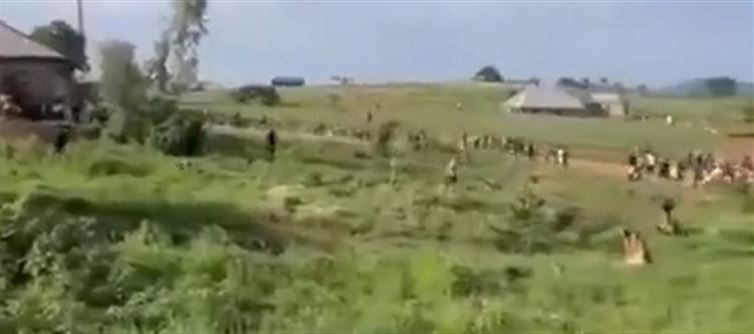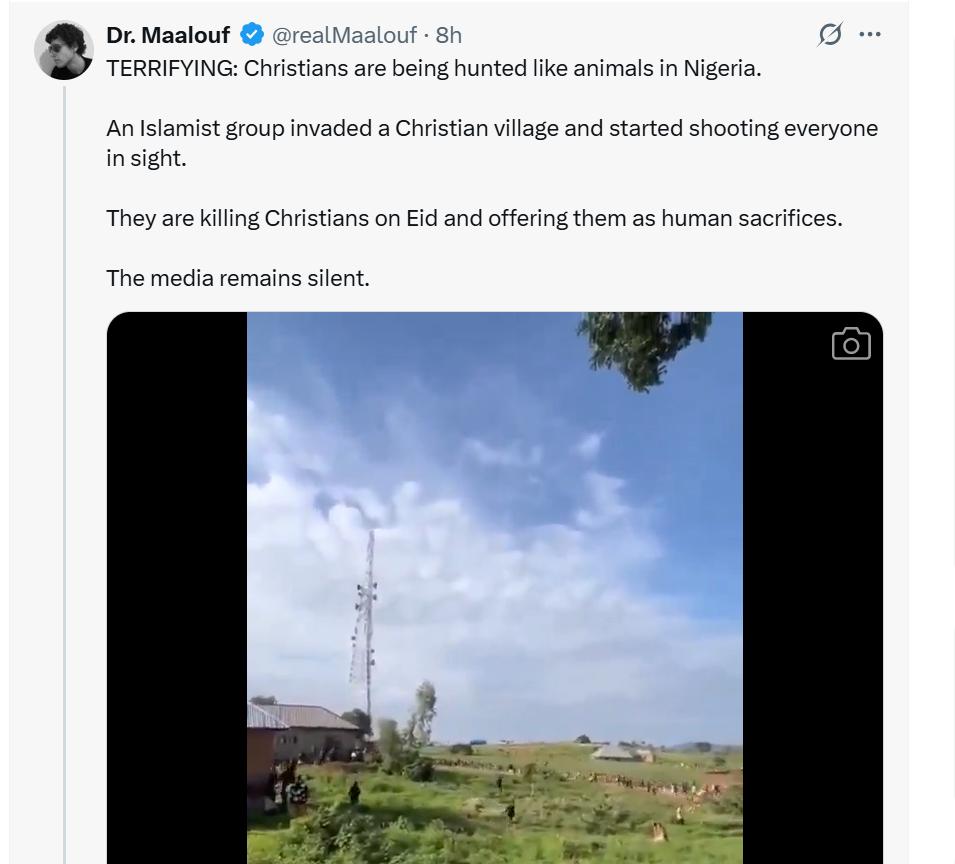
The viral video allegedly connected to this claim does not show any violence or rituals but rather depicts a peaceful setting—suggesting the narrative may be part of misinformation or deliberate disinformation aimed at inflaming religious tensions.
That said, it is true that Nigeria, especially regions like Benue, Plateau, and Kaduna states, has suffered from repeated and deadly violence involving both Christian and Muslim communities. These attacks are often perpetrated by armed groups, including Islamist militants like Boko Haram or factions of Fulani herdsmen, and have resulted in tragic loss of life.
 However, most independent analysts emphasize that these conflicts stem from a complex web of factors—land ownership disputes, climate-driven migration, weak governance, and historical grievances—rather than purely religious motivations. Depicting such violence as simple religious extremism ignores the deeper socio-political context and may hinder efforts toward long-term peace and reconciliation.
However, most independent analysts emphasize that these conflicts stem from a complex web of factors—land ownership disputes, climate-driven migration, weak governance, and historical grievances—rather than purely religious motivations. Depicting such violence as simple religious extremism ignores the deeper socio-political context and may hinder efforts toward long-term peace and reconciliation.Spreading claims of "human sacrifices" without evidence contributes to dangerous misinformation that can incite hatred, provoke retaliation, and deepen mistrust between religious groups. It is vital for media, influencers, and everyday citizens to approach such sensitive reports with responsibility and a commitment to truth. For those seeking accurate information, organizations such as international Christian Concern and Morning Star news do provide regular reports on religious persecution globally, and their nuanced accounts help differentiate verified atrocities from exaggerated or false claims. Promoting factual reporting and critical thinking is essential in confronting real injustices without inflaming further division.




 click and follow Indiaherald WhatsApp channel
click and follow Indiaherald WhatsApp channel